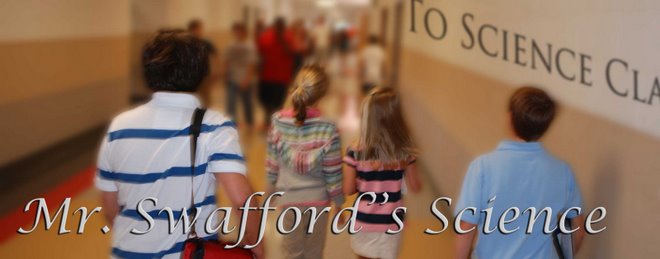Please don't go out of your way to buy anything for this project. Students have been asked to make a cookie (or fake cookie made of cardboard/paper) the shape of a specific planet. Each planet should be made in a way to show as many details about the actual planet as possible. Students need to have a scale for their planet and facts describing the planet. We will discuss the planets in our next class and eat any real cookie planets. Points will be earned as follows: Planet name (1), scale (2), and facts (7). No points for making it into an art project.
Tuesday, December 7, 2010
Planet Cookies Real or Fake
Please don't go out of your way to buy anything for this project. Students have been asked to make a cookie (or fake cookie made of cardboard/paper) the shape of a specific planet. Each planet should be made in a way to show as many details about the actual planet as possible. Students need to have a scale for their planet and facts describing the planet. We will discuss the planets in our next class and eat any real cookie planets. Points will be earned as follows: Planet name (1), scale (2), and facts (7). No points for making it into an art project.
Wednesday, November 10, 2010
Tellus Science Museum
Thursday, October 28, 2010
Monday, October 11, 2010
Demo: Testing Density & Viscosity
GEMS: Acid Rain Play
Featuring Class Periods: 2 & 6
Sunday, October 10, 2010
Ballooning to Space: Homemade Spacecraft's Video
Thursday, September 16, 2010
Monday, September 6, 2010
Pakistan Flooding 2010
Learn about the floods in Pakistan.
Q:1 How is the flooding going to affect food supply for the people of the country? What else will be affected? Why?
Q:2 How is food reaching the people in need?
Listen to an article. The World PRI
Read articles.
BBC: Damage and Challenges
BBC: More flooding cause more people to leave their homes
USA: Aid to Pakistan
See pictures about the flooding.
Huffington Post
BBC
Friday, September 3, 2010
Student Council 2010
And the winners are......
Tuesday, August 31, 2010
Signal Mountain Food Web
 Get to know your environment!
Get to know your environment!
Wednesday, August 25, 2010
Oh Deer: Limiting Factors & Carrying Capacity!
Tuesday, August 24, 2010
Quick Frozen Critters

DDT: Peregrine Falcon
Monday, August 23, 2010
Online Ecology Review: Interrelationships
Monday, August 16, 2010
Welcome 2010-2011 Class!
August 12, 2010
Sixth Grade Science
Welcome to Mr. Swafford’s classroom! I enjoy telling stories and trying engaging activities as we do meaningful schoolwork.
I have two goals for this year. One is to have fun while learning together. The second is harder to measure but no less important: I want each student in my class to feel liked and needed while he/she does his/her very best work.
Here are seven tips that will make your school year great.
1. Have fun!
2. Be a friend. Yes, a teacher can be your friend too, even the hard ones.
3. Have respect!
4. Work for yourself.
5. Always ask questions, especially when you are not sure.
6. Join a club, sport, or an activity.
7. Try your hardest, even when things are not going in your favor.
I trust these tips will help you as you start this school year. Yet if you find you need help, ask one of your teachers; they are here for you! My classroom will be open most lunches. Come into the room if you need a quiet place to study or if you need help with an assignment.
Starting the year off, we will be studying Ecology as our main unit of study. See the reverse side of this letter for a tentative yearlong outline. Teaching will follow the State of Tennessee Science Standards as directed by HCDE policies.
Classroom Expectation
Students are expected to use their agendamates to record homework and as a backup www.smmhs.com. Each student should turn in tasks the day they are due to receive full credit and late work should be placed in the “IN” tray located in the classroom. Science lab journals will be used to record notes, vocabulary, and handouts for review and testing purposes. Benefiting students Holt online offers students the science text, study aids, practice test, short videos and more online. Please login and checkout the wealth of information (passwords given out with the textbook).
Grading: 93-100 = A 10% Homework
85-92 = B 30% Classwork (quizzes, task, labs, projects, journal)
75-84 = C 40% Tests (test, quizzes, performance task, labs)
70-74 = D 20% Exam
0-69 = F
| Journals are expected for each student. Notes and vocabulary are kept in the journal for review and testing purposes. Keep journals neat, up-to-date, and present in classes. |
Monday, July 12, 2010
UTC Science Methods: July 12 & 16

Monday, May 3, 2010
Solar Cookers
Tuesday, February 23, 2010
Causes of Wind!
| WORLD RECORD WIND SPEED The highest wind speed ever recorded on the surface of the Earth was 231 mph on April 12 1934, atop Mt. Washington, New Hampshire. This high-elevation weather station experienced the winds of an extremely strong jet stream that had descended unusually low in the atmosphere. |
| THE WIND AFFECTS THE EARTH'S ROTATION During the northern hemisphere winter, the stronger westerly winds that build up in the Northern Hemisphere, combined with frictional drag at the Earth's surface, actually produce a very small, but measurable, increase in the speed of rotation of the Earth. From: Weatherquestions.com |
Thursday, February 4, 2010
Thursday, January 14, 2010
SMMHS Science Fair 2010













